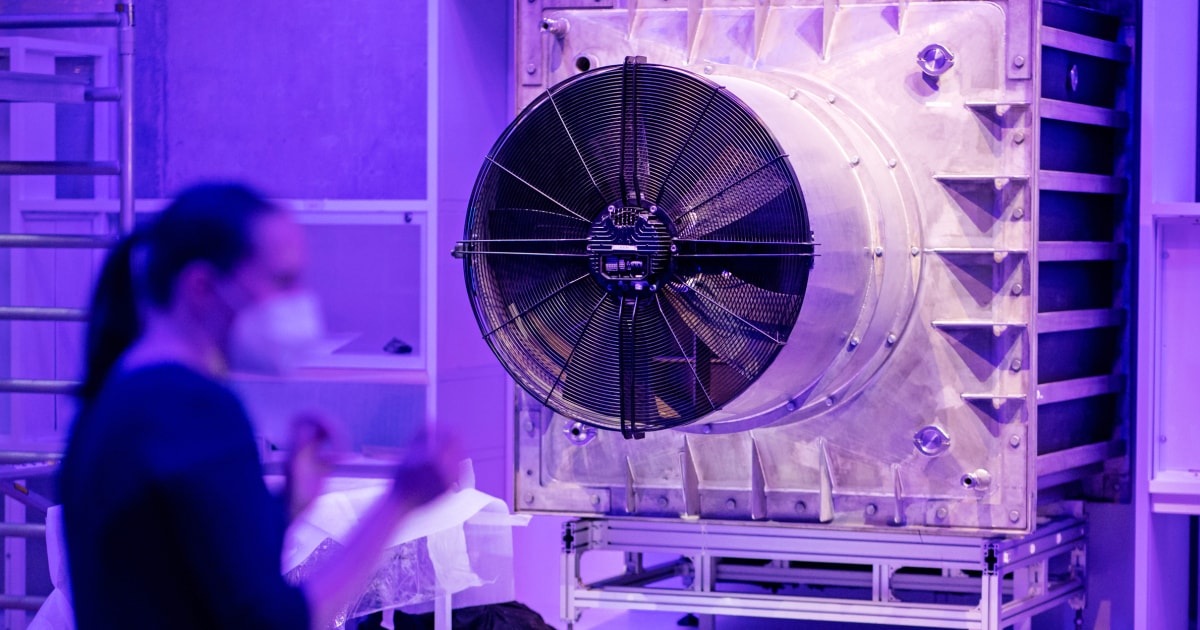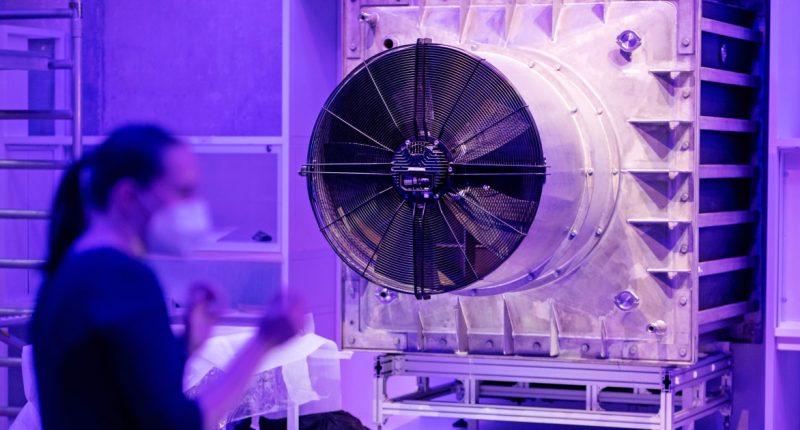
A greener and more equitable future — that’s the idea behind a first-of-its-kind plant to be built in Kenya that could remove up to 1 million tons of carbon dioxide from the atmosphere every year.
The proposal to build a direct air capture plant, announced in September as a joint venture between Swiss company Climeworks and Kenya-based Great Carbon Valley, has been billed as a springboard for creating a new, green economy in Africa as the world is expected to invest trillions of dollars in climate-related investment in the coming years.
Direct-air capture sucks in carbon dioxide from the atmosphere and stores it underground, a process that is relatively energy intensive. The technology has been criticized by some climate scientists who argue that the technology is a dangerous distraction from the only viable solution to climate change: Cutting greenhouse gas emissions by transitioning en masse away from fossil fuels. Others say that direct air capture is a necessary part of a diverse effort to limit global warming.
“The world is going to need to decarbonize,” said Bilha Ndirangu, CEO of Great Carbon Valley. “There will be different investments and innovations in decarbonization efforts. How do we make sure that some of those investments are happening in Africa?”
The case for investing in Africa is heightened by the disproportionate impacts of climate change, such as extreme drought and flooding, on African nations that have contributed little to the world’s greenhouse gas emissions. Last month, discussions at the United Nations and the Africa Climate Summit in Nairobi focused on how to attract more capital to the continent — the world’s youngest continent, with 70% of sub-Saharan Africa under the age of 30.
Calls for investment in Africa are tempered by watchdogs who say foreign investment in the global South can be harmful if investors from the global North prioritize profit over the safety and rights of local populations.
“There’s a real need for safeguards on where these projects are taking place,” said Ugbaad Kosar, the director of environmental justice at Carbon180, a climate nonprofit that advocates for equitable carbon removal. “And once that’s decided, it’s important to track how the resources, benefits and risks are being distributed among the companies and vulnerable populations.”
More from NBC News
Carbon removal companies such as Climeworks create carbon credits corresponding to units of carbon dioxide captured by their plants — these credits can be purchased by companies to offset their carbon emissions. With carbon removal, companies that continue to use fossil fuels can claim to be carbon-neutral because they purchased offsets created by plants like the one planned for Kenya.
“All direct air capture does is help fossil fuel companies pretend they’re taking climate action while they continue to drill for oil,” Jonathan Foley, a climate scientist and founder of Project Drawdown, a nonprofit climate group, said. “Trading a few seconds of the world’s greenhouse gas emissions to give oil and gas companies a fig leaf is not a good bargain.”
The plant, projected to be completed by 2028, will be built in the Great Rift Valley, an intercontinental depression rich in deep basalt formations that extends across Kenya from Tanzania and onward to Ethiopia.
Ndirangu said that the project is an opportunity for Kenya to tackle the climate crisis while creating jobs and expanding the renewable energy grid.
Source: | This article originally belongs to Nbcnews.com










